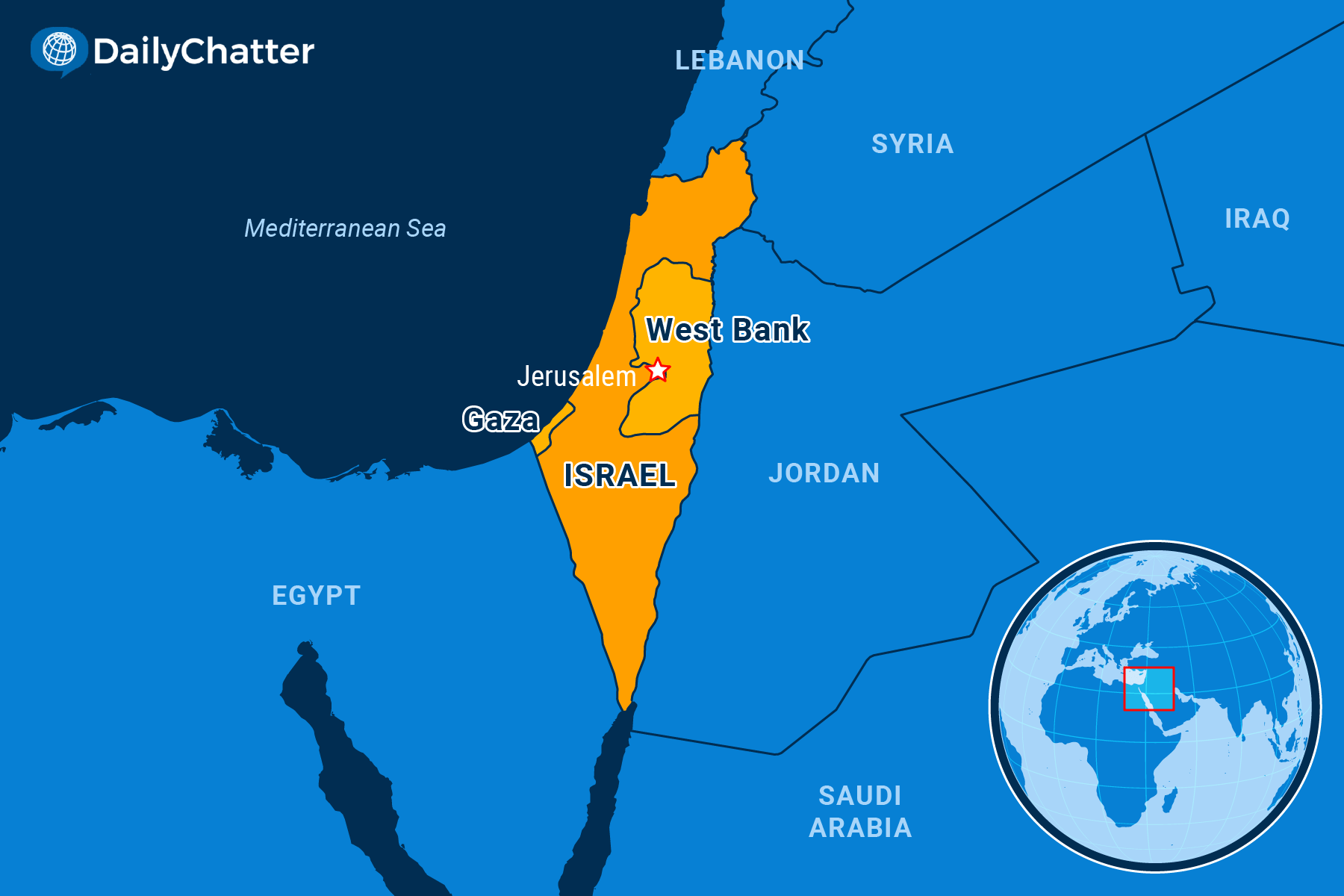Need to Know
October 11, 2023Goodbye, Status Quo
GazaIsrael

|
Listen to Today's Edition
|
Thousands of young people were dancing at an outdoor music festival near the Gaza border in southern Israel on Friday when rockets started flying overhead and gunshots sounded, bringing the party – and a threadbare peace – to an abrupt end.
Palestinian militants affiliated with Hamas, a terrorist group and political party that controls Gaza, had broken through the region’s border fence. They killed at least 260 revelers – in what is the worst civilian massacre in Israeli history – to kick off the violence now raging in the region. “We were hiding and running, hiding and running, in an open field, the worst place you could possibly be in that situation,” Arik Nani, an attendee who was celebrating his 26th birthday, told the Associated Press.
On Monday, Israel announced a siege of Gaza as the country mobilized to counter Hamas’ surprise attack, cutting off food, fuel, or electricity to the tiny, war-torn region between Israel and Egypt. To date, the militants have killed more than 1,200 Israelis and abducted at least 150 people including foreign citizens, reported the Guardian, though those numbers are likely low as the fighting is ongoing. The losses on the Palestinian side top 900 to date, the Associated Press wrote.
Thousands on both sides are injured and even more have been displaced.
The timing of the attack was telling, noted the Conversation, occurring on the day after the 50th anniversary of the Yom Kippur War, when Egypt, Syria, and other Arab countries launched a coordinated surprise attack on the country.
As the world watches for Israel’s potentially devastating response against Hamas, two questions are dominating discussions about the crisis. First, why has Hamas chosen to attack now? Second, why didn’t Israel know the attack was coming?
An Israel divided, weakened and distracted by internal politics over a judicial reform is the quick answer to both those questions, many analysts believe.
Still, geopolitics certainly plays into the first question.
The attack comes as Israel was reportedly negotiating to normalize relations with Saudi Arabia, the preeminent Arab power. As columnist Max Boot argued in the Washington Post, Hamas is Iran’s proxy. It’s likely Iran, through Hamas, wants to destabilize the region. It certainly doesn’t benefit from a détente between Israel and Saudia Arabia. And now, Saudi leaders likely can’t sign a deal with Israel if television newscasts are replaying Israeli attacks on Palestinian neighborhoods in Gaza – even if those attacks are a response to Saturday’s massacre.
Rockets have been Hamas’ most deadly weapon, for example. Iran supplies Hamas with missiles, the Council on Foreign Relations explained. Iran has denied involvement but the Wall Street Journal reported Monday that the country helped plot the attacks and then gave to go-ahead.
Israel’s intelligence failures before the fighting are also under scrutiny, and there will be hand-wringing over these for months to come. Egyptian officials warned Israeli Prime Minister Benjamin Netanyahu that “something big” was brewing, reported the Times of Israel, even as Israeli officials apparently ignored them. Netanyahu’s political fortunes depend on Israeli settlers in the West Bank, for instance. He has been focusing on their security, not sentiments in Hamas-controlled Gaza.
Netanyahu might also have assumed that Hamas wouldn’t attack because spilling Israeli blood would trigger a massive response, leading Hamas to lose the support of ordinary Palestinians in Gaza, Foreign Affairs added.
But that’s yesterday’s calculation, wrote Daoud Kuttab, a Palestinian journalist and former Ferris Professor of Journalism at Princeton University who condemned the attacks while adding that they “should not have surprised anyone.”
Palestinian officials had repeatedly spoken of an explosion if there was no political progress on alleviating their people’s suffering, he wrote.
Last month, for example, Jordanian King Abdullah II told the UN General Assembly: “Without clarity on where the Palestinians’ future lies, it will be impossible to converge on a political solution to this conflict. Five million Palestinians live under occupation – no civil rights; no freedom of mobility; no say in their lives.”
Combine that with an expansion of settlements, increasing violence between Israeli security forces and Palestinians and rising religious tensions as the right-wing coalition in Israel, since it took power late last year, has been “upending a carefully orchestrated status quo agreement on Muslim holy sites,” said Kuttab.
As a result, defenders of the Palestinians say Gazans were simply engaged in a fight for their freedom and their future, pointing to how the West is now supporting the Ukrainians against Russians who occupy their territory, Al Jazeera wrote.
As the Economist noted, it’s too soon to know how all this plays out. Will Israel destroy Hamas? Will a divided Israel come together politically and if so, which way will it turn? Will an agreement between Israel and Saudi Arabia move forward or will the violence spread to the West Bank and Lebanon? Is the two-state solution decisively dead? What will happen to the Israeli hostages? Or to the millions of Gazans stuck in a tiny, explosive enclave caught in between Hamas and Israel with nowhere to go?
Even though the Israelis and Palestinians have gone these rounds before, the magazine added: “It is not too soon to be clear that this attack marks the end of a decades-old belief in Israel that Palestinian aspirations for sovereignty could be indefinitely put aside while the rest of the Middle East forged ahead.”
In other words, the status quo is over.
Not already a subscriber?
If you would like to receive DailyChatter directly to your inbox each morning, subscribe below with a free two-week trial.
Support journalism that’s independent, non-partisan, and fair.
If you are a student or faculty with a valid school email, you can sign up for a FREE student subscription or faculty subscription.
Questions? Write to us at hello@dailychatter.com.

